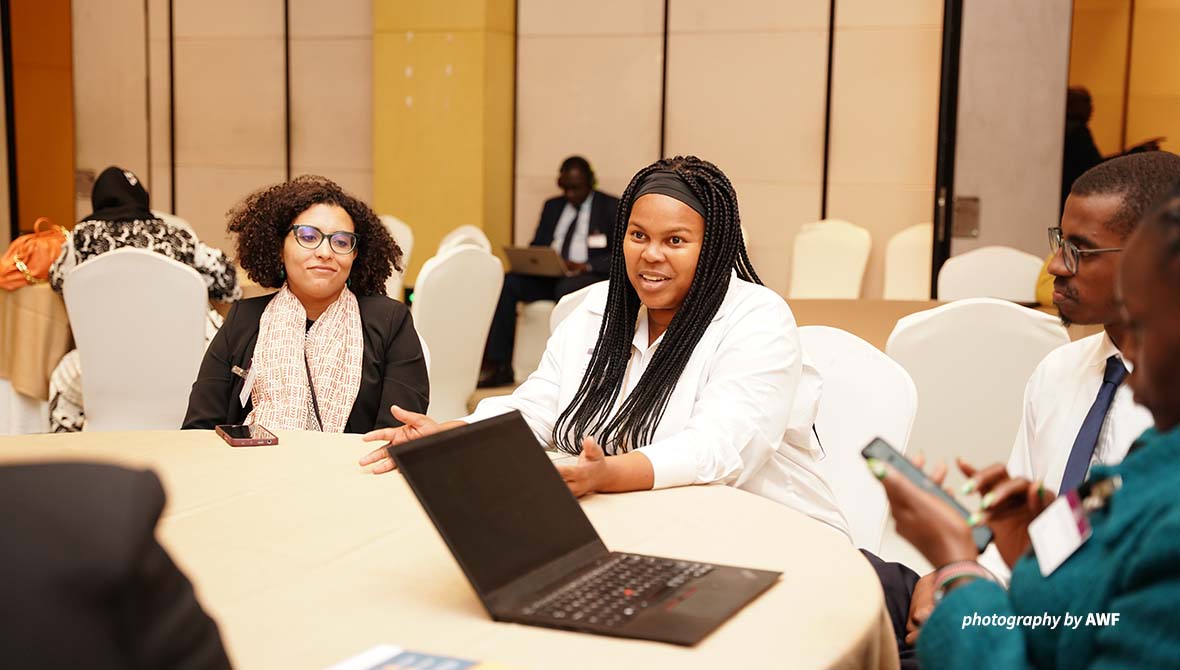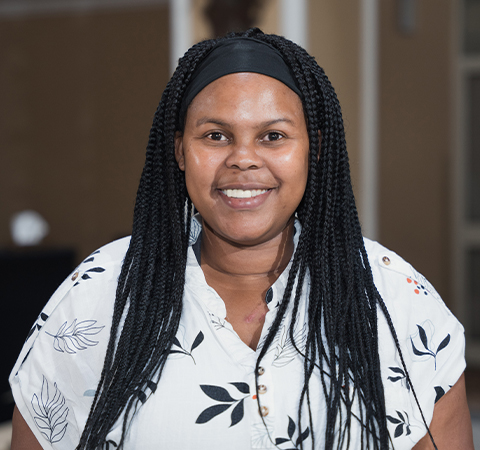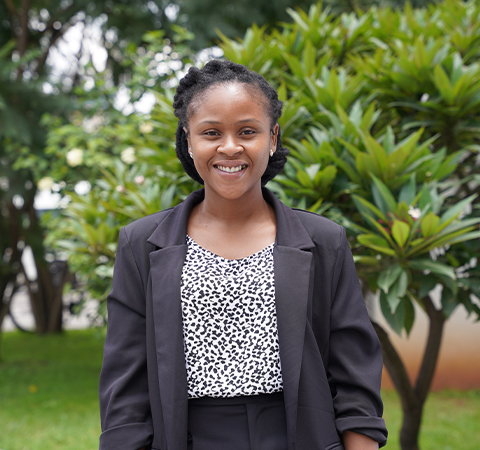Looking Ahead: Young African Professionals Shaping Africa’s Biodiversity Priorities

From August 14-18, AWF delegates engaged at the 19th ordinary session of the African Ministerial Conference on the Environment (AMCEN), which took place in Addis Ababa, Ethiopia. Ahead of the conference, the African Wildlife Foundation collaborated with the United Nations Environment Programme (UNEP) to equip the second cohort of the Charles R. Wall Policy Fellows Program with the skills to contribute meaningfully to global and regional processes such as AMCEN. The program gave them an opportunity to interact with experts and learn practical skills so they can leapfrog Africa to achieve its sustainable development goals.
Simangele Msweli, Senior Manager of AWF’s Youth Leadership Program, joined two of the fellows—Thembelihle Mbokazi and Linda Masudze—to describe the process of preparing for the conference, as well as the importance of including youth in these negotiations.

Simangele Msweli, Senior Manager, Youth Leadership Program
In my experience, AMCEN is not a platform that is socialized among youth in Africa. A lot of young professionals are more familiar with global processes and less so with regional (African processes). But also, it doesn’t have as inclusive structures for youth in Africa. If this platform is adopting priorities for Africa, it’s very important for youth to be engaged. The platform does engage UNEP major groups as a whole, but within major groups, you have diversity that at times requires ensuring specific engagement of those that are underrepresented, such as Indigenous Peoples and Local Communities.
The number of youth attending should not be the only highlight or the definition of youth engagement, but the quality of engagement is what truly matters. This is why we've taken an approach that invests months of training through the Charles R. Wall Young African Policy Fellows Program to ensure that these young leaders understand and interact with the full processes of decision-making. This approach creates a cadre of future negotiators who will have learnt from past mistakes and steer the continent in the right direction.
With the Charles R. Wall Program, fellows start being taught broadly about the conservation approaches in Africa. Then, we move on to the policy side to make sure that they understand why the process and conventions are important and appreciate that Africa is not actually homogeneous.
Then, we bring in experts who train them on International Environmental Governance and Multilateral Environmental Agreements, where they learn how to proceed from a general issue to a policy document with key pointers on when and how to engage in policy processes. This is followed by an intense five-day in-person simulation exercise, linking them with actual negotiators and country focal points that continue guiding them even beyond the program’s lifespan.
This year, the fellows who attended AMCEN have also been part of the preparatory process for the African Wildlife Foundation's delegation, and they have seen how experts have interacted and commented on the working documents. This ensures the delegates are not misinformed and they can see the bigger picture with key rationale that they can draw from the numerous virtual theoretical sessions as well.

Thembelihle Mbokazi, Charles R. Wall Policy Fellow
Political decisions taken at high-level gatherings affect all levels of governance and sometimes even dictate how society can and may not benefit from nature, going as far as dictating which class of society is best suited to benefiting from nature. Therefore, it is of utmost importance that young people are aware of what the issues are, what makes these issues a priority, what happens with the non-priority issues, and who decides what is a priority and what is not—and how this decision is reached in order to be able to identify points of entry and what their contributions can be.
Young people will inherit both the positive and negative actions of our leaders. Therefore, if we are to be left behind with this world, then we need to be able to know what is happening. And we need to know what needs to be done to either prevent further damage or to just make it right.
Young people need to understand that just because something is legal does not mean it is just. Many injustices emanate from the law, but they remain unseen because the policymaker becomes the judge.
Entering the negotiations space will allow me and every other involved young person to bring influence from the outside world, packaged with passion and weaved together by political motivations. Young minds are still very malleable, which allows us to bring forth novel solutions that address more than one problem while minimizing negative consequences.

Linda Masudze, Charles R. Wall Policy Fellow
In my chosen path of law, negotiation skills are a given, but when your client is Earth, such rigorous training under the policy fellowship is not only a requirement for our benefit as young Africans but for the continent’s sustenance as a whole.
While participating in the Regional Consultative Meeting (RCM) for major groups, which consists of CSOs, youth networks, NGOs, businesses, Indigenous peoples, and local communities, it dawned on me that biodiversity needs as many legal representatives as it can get. Without a doubt, the guidance and input from different experts who belong to various environmental and other professional fields were imperative and intriguing to experience.
Negotiation skills were also at play—mostly on how to present your argument, sustain it, and defend it. All these are proficiencies inherent in every lawyer, and what better way to serve the environment than using these tools? But the real cherry on top was watching my fellow legal colleagues during the meetings. Apart from their legal qualification, they were also environmental experts in their own right. They had studied biodiversity in its various aspects independent of the legal field, and as a result, their contributions were well-informed.
A fellow senior legal counsel, however, did lament that Mother Earth was in need of more lawyers. More lawyers are necessary to participate in environmental protection at a grassroots level and in the public and private sectors. Therefore, there needs to be more awareness, especially among the young budding lawyers, so that there is increasing active engagement on their side—and also because young people are the future.
Nature cannot speak or defend itself. Therefore, it is our duty to speak on its behalf and pursue the implementation of nature’s best interests.
>>Why AMCEN matters in delivering for people and biodiversity